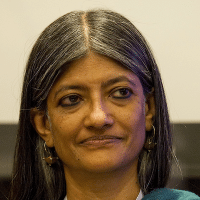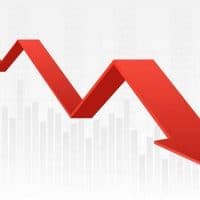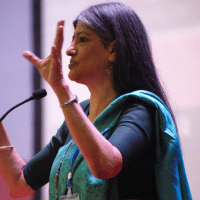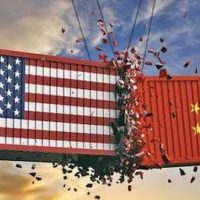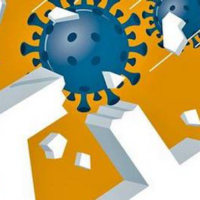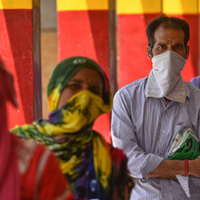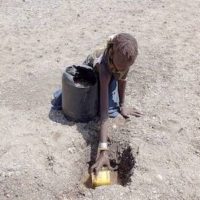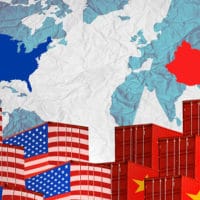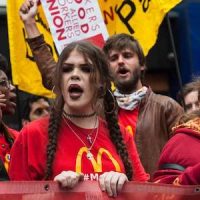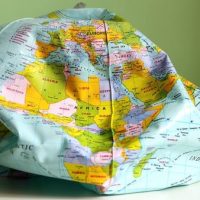-
Vaccine apartheid
These hopes may not last long. The announcement has sent governments scrambling to lay claim to vaccine doses, apparently realizing a bleak prediction: wealthy countries and individuals will monopolize early doses of any effective vaccine.
-
Discrimination and bias in economics, and emerging responses
Recently, mainstream economics has been forced to acknowledge some of the explicit and implicit forms of discrimination and bias that are rampant in the discipline, thanks in particular to some brave interventions by some women economists.
-
Growing divergence between China and ‘Developing Asia’
The past year has brought into sharp relief the significant differences between China and the rest of the world.
-
It’s all work and no pay for most women in India
The NSSO’s time use survey reveals striking facts about how men and women in India spend their time very differently, with women hugely burdened by unpaid work
-
A guide to flattening the curve of economic chaos
Well-thought-out policies can reverse the results of incompetence; the onus is on the Centre to spend now
-
Why do we need to Transform Economics, and how do we do it?
First, a lot of it is simply wrong: that is, it is misleading about how economies work and the implications of economic policies and processes. For decades now, a significant and powerful lobby within the discipline has peddled half-truths and absolute falsehoods on many critical issues.
-
COVID-19 adds new dimensions to U.S.-China trade war
The Trump regime is ratcheting up its protectionist rhetoric vis-à-vis China. If this leads to new sanctions, it would worsen the COVID-induced trade crisis rather than help the U.S.
-
Growth figures underscore economic crisis amidst COVID
Early evidence on the intensity and drivers of the COVID-induced crisis in the U.S. and Europe suggests that the official response may lengthen the recession and delay recovery
-
The pandemic and the global economy
Developing countries face collapsing international trade, falling remittances, sharp reversals of capital flows, and currency depreciation. Only bold policies—debt relief, international financing, planning, and more—will avert further catastrophe.
-
The COVID-19 debt deluge
How long the COVID-19 crisis will last, and what its immediate economic costs will be, is anyone’s guess. But even if the pandemic’s economic impact is contained, it may have already set the stage for a debt meltdown long in the making, starting in many of the Asian emerging and developing economies on the front lines of the outbreak.
-
No escape from low growth
Discussions on the state of the world economy centre around the likely negative impact of the novel coronavirus epidemic and the potential positive effect of the truce reflected in the “phase 1” trade deal between China and India.
-
The growing threat of water wars
In 2015, United Nations member states adopted the Sustainable Development Goals, which include an imperative to “ensure availability and sustainable management of water and sanitation for all.” Yet, in the last four years, matters have deteriorated significantly.
-
Jayati Ghosh Says More…
“Economic policy globally has become heavily distorted in favor of the rich, with governments increasingly beholden to corporate interests, and thus highly resistant to progressive policies.”
-
The IMF’s latest victims
In 2013, the International Monetary Fund produced a report acknowledging that it had “underestimated” the effects that austerity would have on Greece’s economy. Yet the Fund has made the same mistakes in its subsequent deals with Argentina and Ecuador.
-
The exploitation time bomb
Worsening economic inequality in recent years is largely the result of policy choices that reflect the political influence and lobbying power of the rich. There is now a self-reinforcing pattern of high profits, low investment, and rising inequality–posing a threat not only to economic growth, but also to democracy.
-
Disruption in the world of trade
What is noteworthy is that the deceleration in import volume growth has been particularly marked in the emerging economies of Asia and Latin America, pointing to a loss of momentum in the countries that were expected to be new growth poles in the immediate aftermath of the 2007 crisis.
-
Vanishing green shoots and the possibility of another crisis
Governments and central banks that were upbeat about global economic recovery are turning pessimistic. A coordinated fiscal stimulus across nations is the need of hour.
-
The political roots of falling wage growth
It’s now official: workers around the world are falling behind. The International Labor Organization’s (ILO) latest Global Wage Report finds that, excluding China, real (inflation-adjusted) wages grew at an annual rate of just 1.1% in 2017, down from 1.8% in 2016. That is the slowest pace since 2008.
-
Global instability and the development project: is the twenty-first century different?
Ever since the global financial crisis of 2008–2009, the trajectory of the world economy has been hesitant, unstable and prone to many risks. Output recovery has been limited and fragile; and, more significantly, even in the more dynamic economies, it has not increased good-quality employment or reduced inequality and material insecurity.
-
Why clubbing employment and work in India is misleading
This lack of distinction explains the decline in women’s workforce participation rates. The decline reflects a shift from paid to unpaid work.


